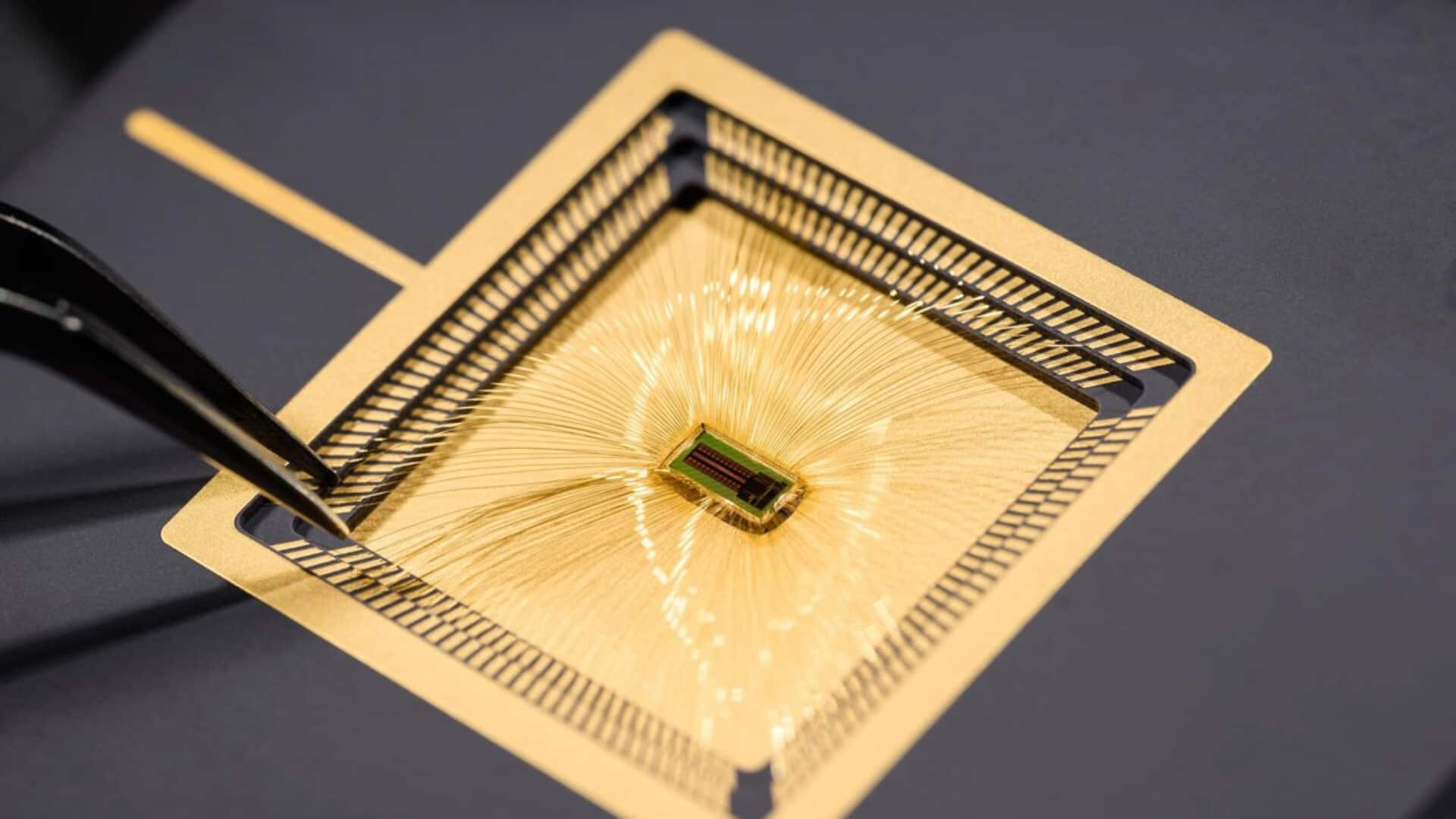
Miniature brain chip turns thoughts into text with 91% accuracy
What's the story
A team of researchers from the Ecole Polytechnique Federale de Lausanne (EPFL) in Switzerland has developed a groundbreaking brain-machine interface (BMI).
The device, known as the Miniaturized Brain-Machine Interface (MiBMI), is based on silicon chips and can convert complex neural signals into readable text.
This innovative technology could significantly improve communication for individuals with severe motor impairments.
Technological advancement
MiBMI: A leap forward in brain-machine interface technology
The MiBMI is a high-performance device that stands out for its compact size, efficiency, and versatility.
It is designed to decode neural signals produced when a person imagines writing.
These signals are captured by electrodes implanted in the brain and associated with imagined hand movements.
The MiBMI chipset then processes these recorded neural signals instantaneously, converting the brain's intended hand movements into digital text.
Clinical applications
MiBMI's potential to aid communication in motor impairments
The MiBMI device could be particularly beneficial for individuals with severe motor impairments, including locked-in syndrome.
The lead author of the study, Mohammed Ali Shaeri, stated that while the chip has not yet been integrated into a working BMI, it has processed data from previous live recordings with an impressive 91% accuracy.
This suggests its potential effectiveness in clinical applications.
Design details
MiBMI's design and future prospects
The MiBMI's design is compact and requires low power, making it ideal for implantation.
The fully integrated system operates on two tiny chips, totaling just 8mm sq.
Its minimal invasiveness ensures safety and practicality for use in clinical settings.
The team behind the MiBMI aims to develop a versatile BMI that can be tweaked to various neurological disorders, providing a broader range of solutions for patients.